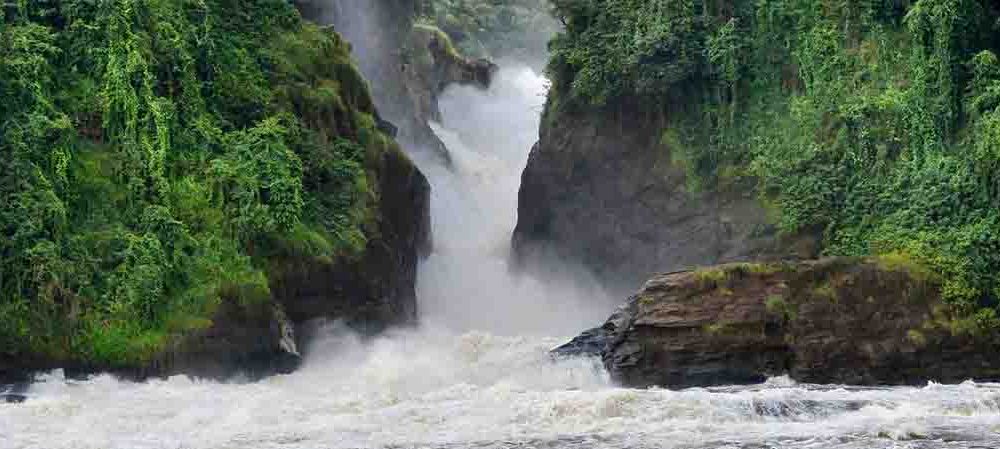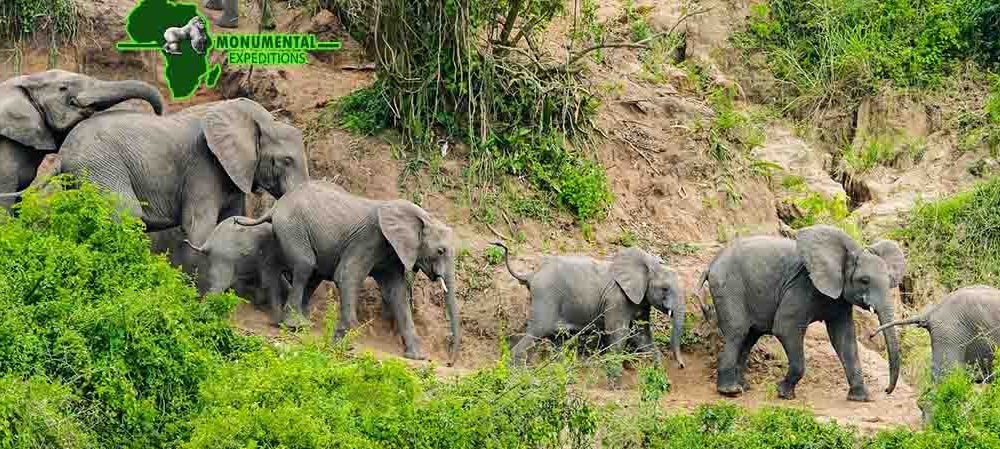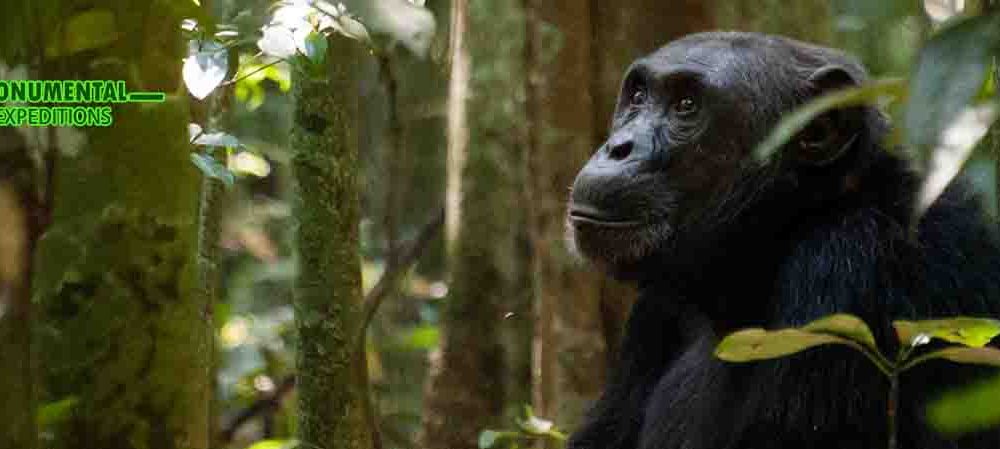2 Day Murchison Falls Budget Wildlife Safari. An Idea of a True Uganda Wildlife Safari…
Primate walks in Bigodi wetland sectuary
Primate walks in Bigodi wetland actuary – Bigodi Swamp walks.
Primate walks in Bigodi Wetland Sanctuary; second to Kibale Forest National Park, which boasts 13 primate species overall, this habitat supports around 9 primate species. But Bigodi Swamp, within kibale forest national park, has grown to be a great spot for seeing and shooting monkeys owing to the thick forest cover inside.
During limited food seasons in kibale forest chimpanzees have been observed feeding in the swamp on season fruits and other vegetation. These primates include gray cheeked Mangabeys, red colobus monkeys, L’Hoest’s Monkeys, Vervet monkeys, blue monkeys, black and white colobus, Red tailed monkey and baboons.
Some of the birds in Bigodi are: Papyrus Gonolek, white winged warbler, Shining blue kingfisher, white spotted flufftail, Great blue Turaco, White tailed ant-thrush, Yellow billed barbet, Uganda spotted wood-pecker (speckled breasted wood pecker), Joyful green bull.
Before reserving the primate walks in the Wetland Sanctuary of Bigodi, everything you should know.
Although this walk may be done any time of the day, the optimal times are in the morning and evening as monkeys like to rest in the middle of the day and are less active.
For professional photographers, both short and long lenses are very advised as at times monkeys and birds might be at distance.
Bring rain coats to prevent getting wet should it start to rain during your stroll.
Although there are site guides available, if you want an expert guide like as a bird guide, please get in touch with excellent adventure safaris for plans.
The local community owns Bigodi Wetland Sanctuary under KAFRED; so, when you engage in this activity, you are directly helping the people around the national park of Kibale Forest.
Any one may undertake this stroll as the ground is very level; physical presence is not needed.
One should engage in this exercise whenever of the year.
What should one carry for the birding trip?
A pair of binoculars.
One must bring binoculars as the area features thick trees, which makes it difficult to see certain birds without them.
waterproof jacket
It’s advisable to pack a rain suit since the Rwenzori sometimes rains anywhere near kibale forest.
Photographer.
Given the abundance of activity on the trip, it might be worth carrying a camera to capture images of monkeys and birds.
Getting water.
Usually taking three to four hours, the treks in the forest may be humid at times; hence, it is suggested to pack drinking water.
![]()
Booty hiking
Hiking boots are advised for comfort as certain muddy areas on the hike path and the marsh have snakes.
long trousers.
In birding trips, long trousers are advised as you could go off the walking path to precisely see birds.
Any shirt is good.
The swamp long or short sleeved shirts will be ideal as the likelihood of biting insects and stinging nettles is rather low.
How can one reach the wetland paradise at Bigodi?
About forty kilometers from Fort Portal Town, the Bigodi Wetland Swamp route is ideal for any vehicle to handle its 45-1 hour travel over Kibale Forest National Park.
Ideal time to visit the Wetland Sanctuary of Bigodi
Bigodi Wetland Sanctuary is visited all year round. The driest months, December through February and the months of June and July are hence the greatest seasons for this pastime. At this time, walking the paths is simpler, and the whole experience usually is more fun.
Where on the Bigodi Wetland Sanctuary should one stay?
Among the other lodging choices in Bigodi are kibale forest camps, kibale home stays, monkey lodge, Turaco tree tops, chimpanzee forest guest house, isunga lodge.


